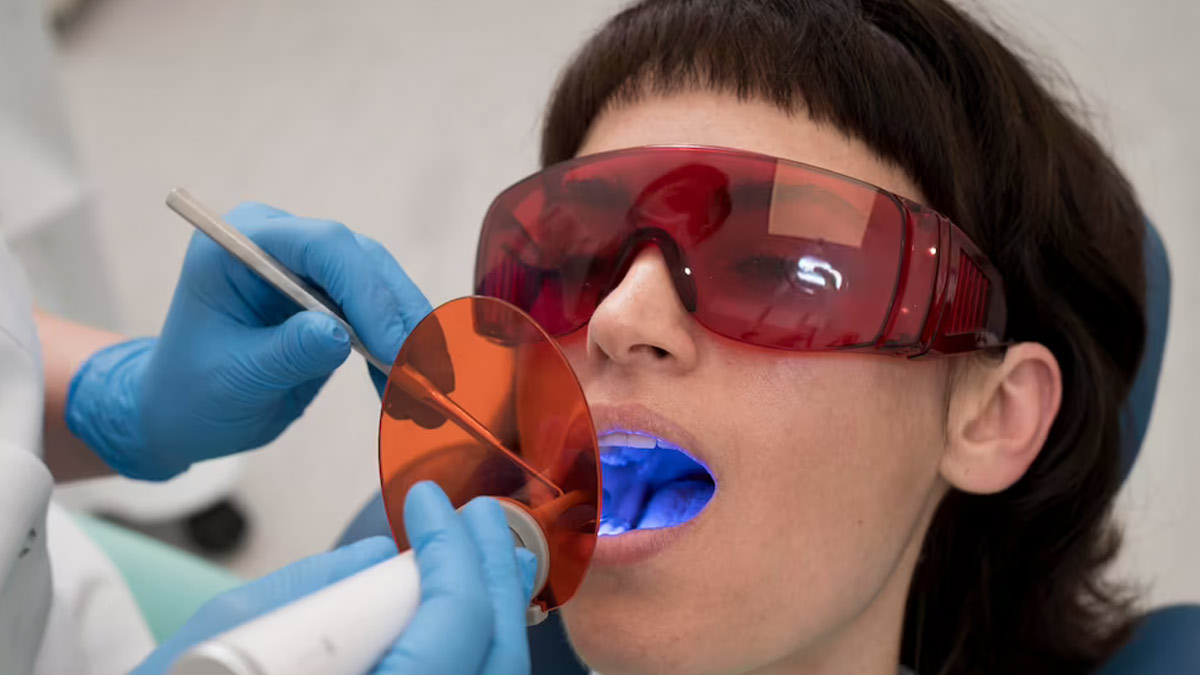
A healthy smile starts with proper oral hygiene. Plaque, a sticky layer of germs, can cause a variety of dental problems if not treated properly. Adopting simple yet effective dental habits is critical for reducing plaque and improving overall oral health. Here are some essential behaviours to incorporate into your everyday routine.
Table of Content:-
“When you sit on a dental hygienist's chair, he can see your entire mouth. They can clearly see the plaque and tartar deposits on your teeth, which is not the case when you use a plaque scraper at home and look in the mirror,” said Dr Dinesh Lakhera, M.D.S (Orthodontist), Principal Specialist, ESI Dausa, Rajasthan. Having a clear view of all your teeth allows the hygienist to remove plaque from hard-to-reach places of the mouth.
Brushing Twice a Day
Brush your teeth thoroughly twice a day, in the morning and before bedtime, using fluoride toothpaste. Ensure you reach all surfaces of your teeth and spend at least two minutes on each brushing session.
Also read: Long-Term Lung Issues Plague Mild COVID Survivors One Year Later, Study Reveals
Proper Brushing Technique
Use a soft-bristled toothbrush and angle it at a 45-degree angle to your gums. Brush in circular motions, focusing on each tooth individually. Don't forget to brush your tongue and the roof of your mouth to remove bacteria.
Flossing Daily
Flossing is essential for removing plaque and food particles between teeth and along the gumline. Make it a daily habit to floss to prevent cavities and gum disease.

Mouthwash
Rinse your mouth with an antimicrobial or fluoride mouthwash after brushing and flossing. This helps reduce plaque, fight bacteria, and strengthen enamel.
Stay Hydrated
Drinking water throughout the day helps flush away bacteria and food particles, reducing the risk of plaque buildup. Water is also crucial for maintaining saliva production, which aids in neutralising acids and protecting teeth.
“Dehydration can cause dry mouth, exacerbating bad breath. Drinking enough water throughout the day can help keep your mouth moist and avoid the growth of odour-causing germs,” said Dr Nihal Yadav, BDS, Amayra Dental Clinic, Kaushik Enclave, Burari, Delhi and Former Resident, Deen Dayal Hospital, Hari Nagar, Delhi.

Healthy Diet
Consume a balanced diet rich in fruits, vegetables, whole grains, and lean proteins. Limit sugary snacks and beverages, as sugar contributes to plaque formation.
Regular Dental Check-ups
Schedule regular dental check-ups and cleanings. Professional cleanings help remove plaque and tartar that regular brushing and flossing might miss.
Also read: Dental Health: Here Are Some Best And Worst Food For Your Teeth
Chew Sugar-Free Gum
Chewing sugar-free gum can stimulate saliva production, which helps neutralise acids and wash away bacteria. Look for gum with xylitol for added benefits.
Use a Tongue Scraper
Include a tongue scraper in your routine to remove bacteria and debris from the surface of your tongue, preventing bad breath and improving overall oral hygiene.
Replace Your Toothbrush
Change your toothbrush or toothbrush head every 3-4 months or sooner if the bristles are frayed. A worn-out toothbrush is less effective in cleaning teeth.
Taking proactive efforts in your regular dental regimen will help you attack plaque and preserve good oral health. A healthy and beautiful smile is built on consistent brushing and flossing, frequent dental check-ups, and a conscious diet. Remember, a little effort every day can help prevent dental problems and promote a confident, joyful smile.
Also watch this video
How we keep this article up to date:
We work with experts and keep a close eye on the latest in health and wellness. Whenever there is a new research or helpful information, we update our articles with accurate and useful advice.
Current Version
